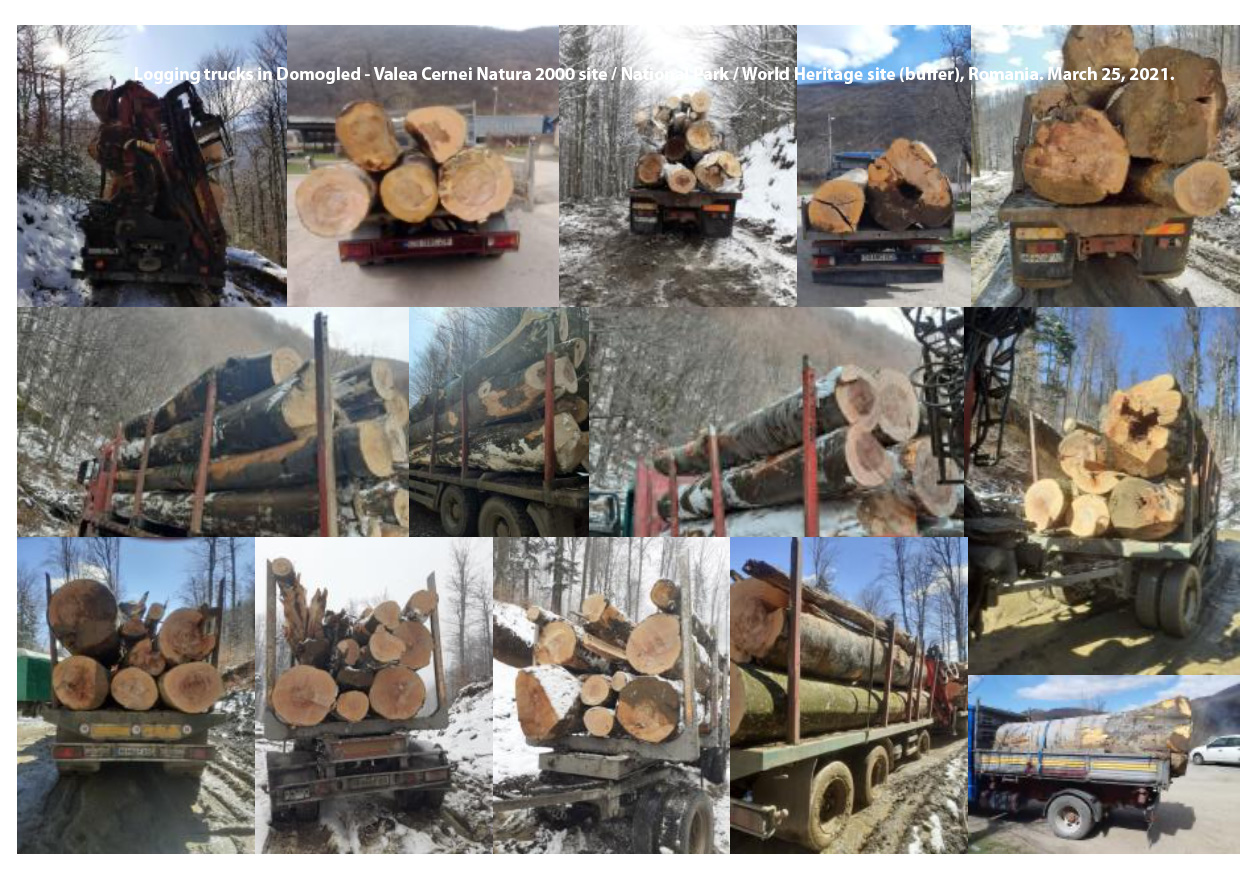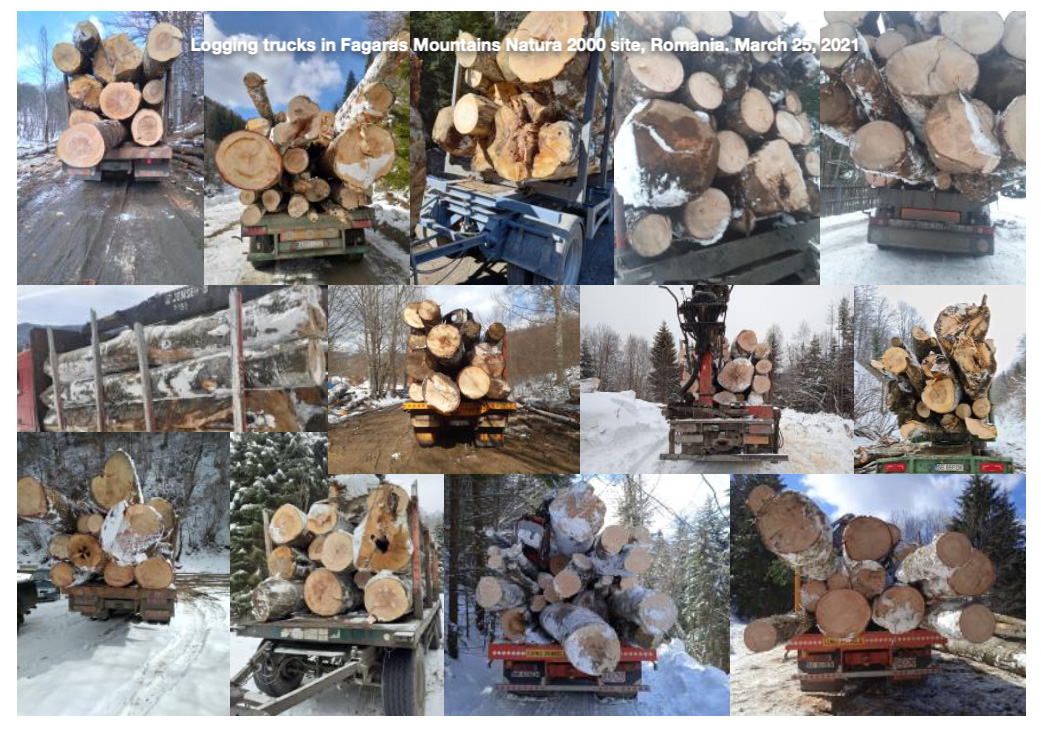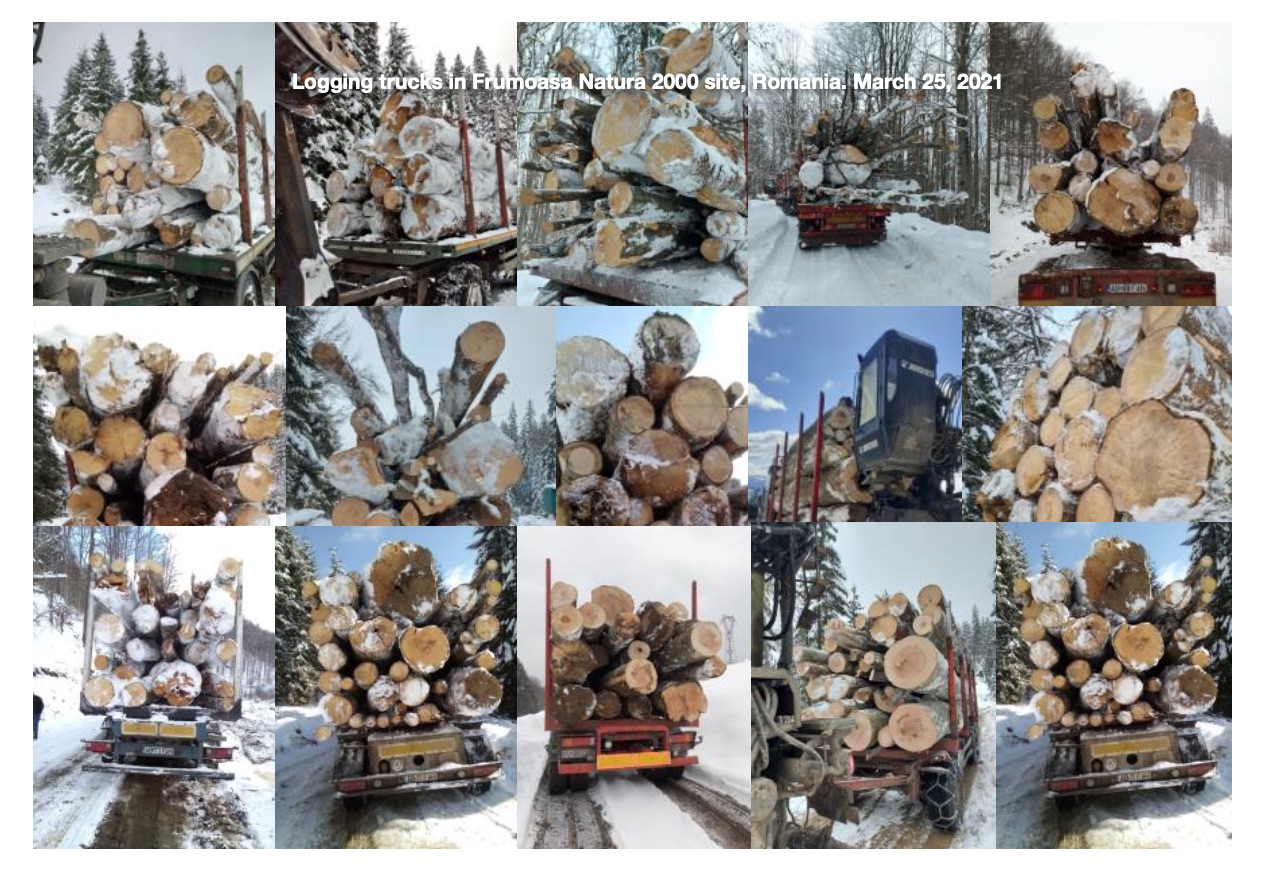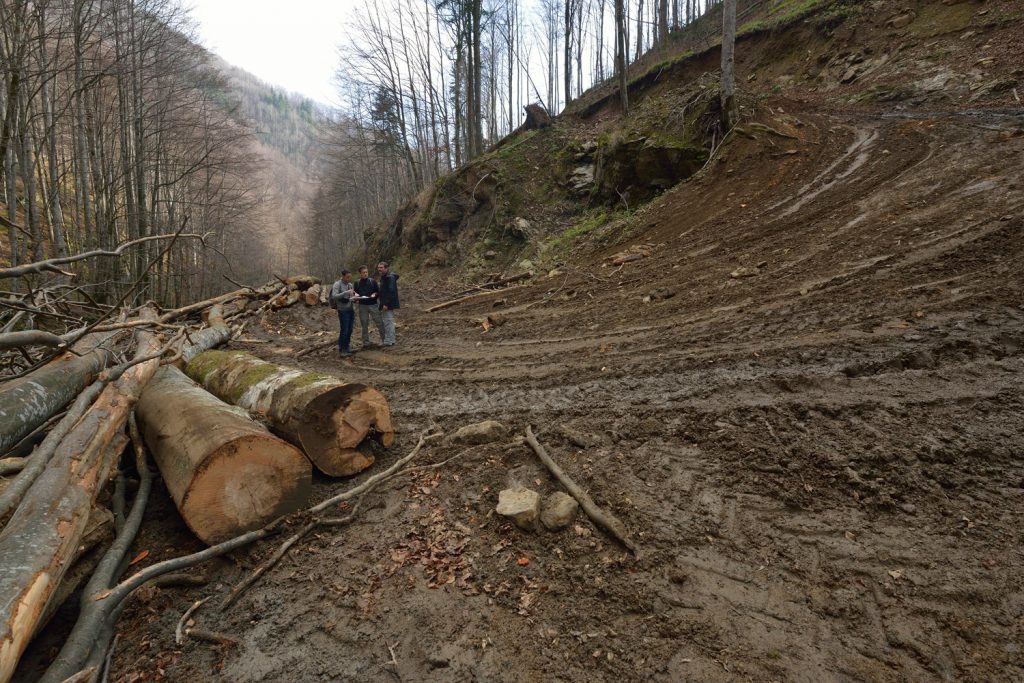“Habitat tree funeral” – EuroNatur / Agent Green: EU must speed up infringement procedure to avoid further destruction of Natura 2000 sites.
Members of the European Parliament urge EU Commission to ensure overhaul of logging permissions in Romanian Natura 2000 sites.
Experts from EuroNatur Foundation and Agent Green have conducted thorough checks of the Romanian government’s own Forest Inspector website (“Inspectorul Pădurii”) and have unveiled some extremely disturbing findings. The ‘control’ images of trucks hauling trees from Romania’s forests (which have to be uploaded by the truck drivers themselves) reveal the scandalous extent of the continued destruction of outstandingly precious forests in Natura 2000 areas. The images show hundreds of giant and centuries old methuselah trees, cut down in protected areas and loaded on trucks every single day. This digital ‘habitat tree funeral’ provides realtime “live” reporting of one of the biggest nature destruction scandals in the EU.
As not all truck transports on the website are illustrated with photographs and illegal logging transports have no entry on the Forest Inspector website at all, the tragedy in the vanishing natural forests of Romania is most likely even bigger.
These images give objective and independent proof of the scandal of ongoing logging in high biodiversity value forests in Romanian Natura 2000 sites, national parks and other protected areas.
The sheer volume of cut down habitat trees on the website is overwhelming.
“The fact that these images (see below; comment) are being uploaded and published on an official governmental web server in 24/7 rolling coverage, without the relevant politicians and authorities taking any immediate action to protect these forests, is really mind-boggling. The government and authorities are obviously aware of these images illustrating the progressive destruction of many of Europe’s most valuable forest habitats. This is a tragedy and its utterly unacceptable. The European Commission must speed up with the infringement procedure in order to contain the destruction of many of EU’s last intact old growth and primary forests now“, Annette Spangenberg, Head of Conservation at EuroNatur Foundation says.
Images gallery 1: Domogled-Valea Cernei Natura 2000 site/ national park

These images are just a tiny percentage of the screen shots from the Forest Inspector website taken within the last couple of weeks.
The European Commission launched an infringement procedure against the Romanian state in February 2020 due to violations of EU law including the illegal logging in Natura 2000 protected forests. Since the EU Commission published a clear and critical “reasoned statement” in July 2020, the process has not yielded any outcome that has stopped this destruction from continuing.
In the meantime, indications have emerged that Romania is apparently trying to stall the procedure with the promise of a some adjustments of national laws to EU legislation. These legislative changes would not have any impact on already approved 10-years logging plans. So the deliberate destruction of EU protected forests – before the eyes of the public – would continue.
“If the EU Commission accepts that Romania is only obliged to improve EU compliance of some laws but not be urged to overhaul all existing logging permissions concerning natural forests in Natura 2000 sites, that would be a serious setback for the entire EU Biodiversity Strategy 2030, the Green Deal and the implementation of Natura 2000 throughout the EU”, Annette Spangenberg adds.
Members of EU Parliament urge European Commission to ensure logging of natural forests in Natura 2000 is halted
This opinion was also expressed recently in a letter by several Members of the European Parliament to the European Commission: “If the infringement proceedings were closed without ensuring that the current logging impact on primary and old-growth forest in Romania is significantly reduced it would also seriously hamper the Green Deal and the EU’s embedded Biodiversity Strategy 2030. It would also be completely contradictory if on the one hand the European Commission is willing to invest into planting 3 billion trees in the EU while on the other hand the massive felling of old-growth forests is accepted.”
The MEPs Martin Häusling, Anna Deparnay-Grunenberg, Thomas Waitz, Sarah Wiener and Michal Wiezik conclude: “We call for the necessary suspension and complete overhaul of all forest management plans and logging licenses affecting Natura 2000 sites and primary/old-growth forests and finding a solution to compensate owners accordingly. Romania’s primary and old growth forests need to be preserved according to the objectives of the EU Biodiversity Strategy 2030 and the EU Green Deal.“
Images gallery 2: Fagaras Mountains Natura 2000 site

Images gallery 3: Frumoasa Natura 2000 site




